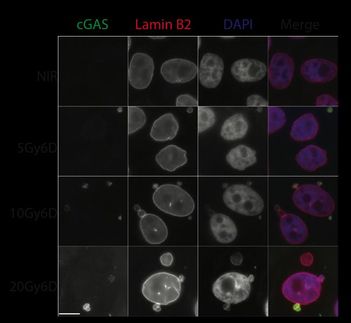UC San Diego researchers reverse pulmonary arterial hypertension in mouse models
Advertisement
Researchers at the University of California, San Diego, have identified a key protein that promotes the development of pulmonary arterial hypertension in humans and mice. This groundbreaking discovery has implications for future drug therapies that may extend the life of patients with pulmonary arterial hypertension and prevent the need for lung transplantation, currently the only cure for this debilitating disease.
In a paper published in Nature Medicine, Patricia Thistlethwaite, MD, PhD, Professor of Surgery and cardiothoracic surgeon in UCSD's Department of Surgery, and colleagues describe the genetic pathway by which vascular smooth muscle cells associated with pulmonary arterial hypertension are switched on to proliferate by a receptor protein called Notch-3. With this finding, the researchers were able to block and reverse the pathway of disease in mice.
"The UCSD team found that pulmonary hypertension is characterized by overexpression of Notch-3 and that the severity of the disease correlates with the amount of this protein in the lung," said Thistelthwaite. "We showed that a mouse model lacking this protein does not develop pulmonary hypertension, and in addition, that the disease can be effectively treated with an enzyme called gamma-secretase inhibitor, which blocks Notch-3 activation."
In Thistlethwaite's laboratory, mice with pulmonary arterial hypertension that were treated with the gamma-secretase inhibitor showed reversal of the disease. Forms of this drug are currently in use in Phase 1 trials for the treatment of Alzheimer's disease.















































